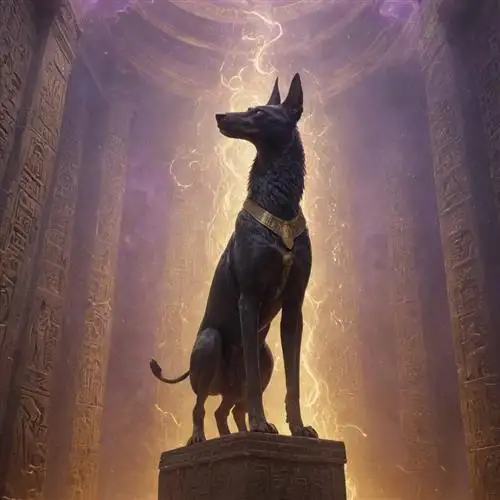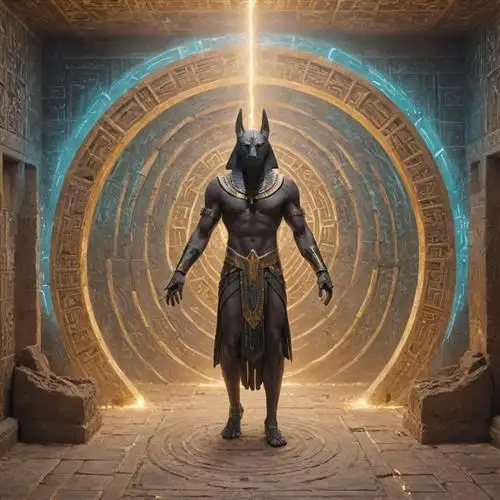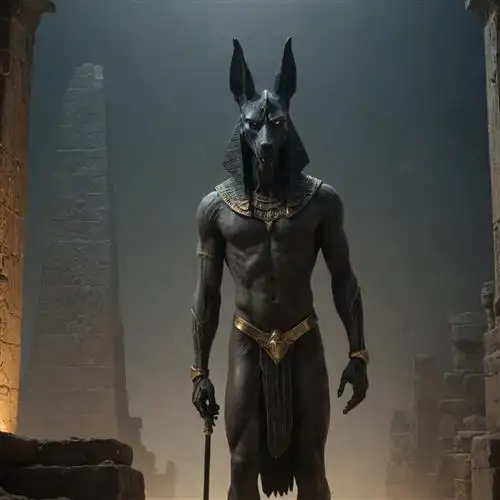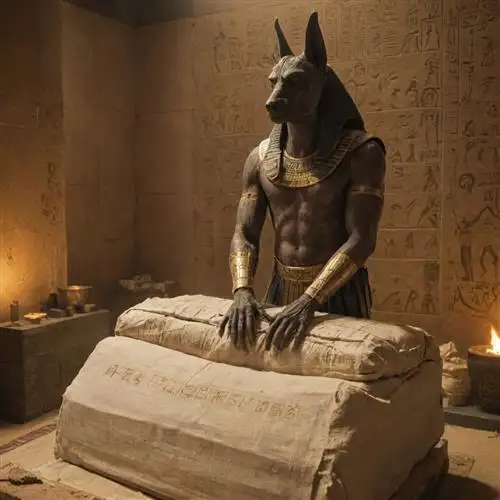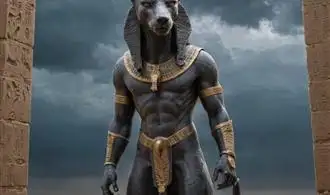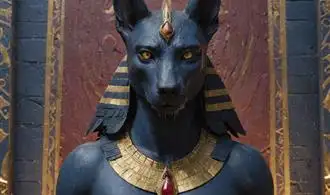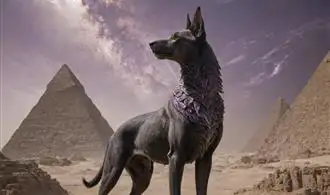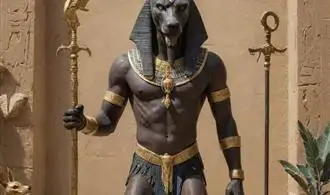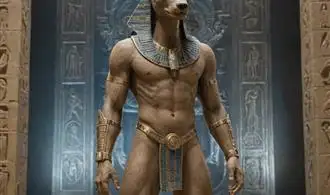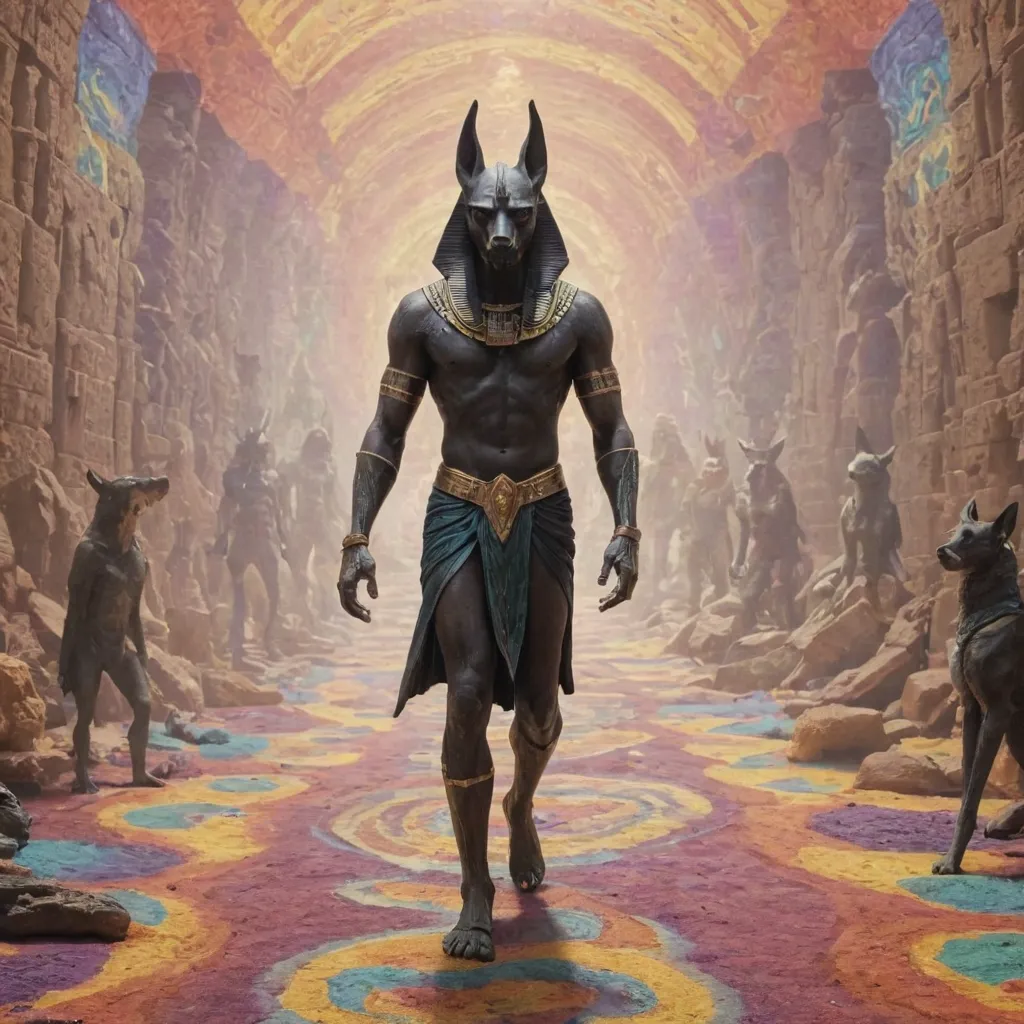
Anubis and the Scales of Justice
As the Egyptian god of the dead, Anubis played a crucial role in the afterlife, particularly in the judgment of the deceased. One of his primary responsibilities was to preside over the weighing of the heart ceremony, where the deceased's heart was weighed against the feather of Ma'at, the goddess of truth and justice. This ritual symbolized the assessment of the individual's moral character and the determination of their worthiness to enter the afterlife.
The symbolism of Anubis and the scales of justice holds profound significance for those seeking to avoid failure in their lives. The god's role as the "Weigher of Souls" represents the importance of maintaining balance, fairness, and integrity in one's actions and decisions. By aligning oneself with the principles of Ma'at, individuals can strive to live a life that is in harmony with the cosmic order, avoiding the pitfalls of moral corruption, deceit, and self-destructive behaviors.
The scales of justice, as represented by Anubis, serve as a powerful metaphor for the importance of maintaining balance and equilibrium in all aspects of life. Just as the scales must remain perfectly balanced to ensure a fair judgment, individuals must strive to maintain a sense of balance between their actions, emotions, and responsibilities. This can involve cultivating mindfulness, practicing self-reflection, and making decisions that prioritize integrity and the greater good over short-term gains or personal desires.
Furthermore, the association of Anubis with the scales of justice emphasizes the concept of personal accountability. In the Egyptian afterlife, the deceased were held responsible for their actions, and the scales of justice were used to determine their fate. This principle can be applied to the modern world, where individuals must take ownership of their choices and their impact on themselves and others. By embracing this sense of accountability, people can make more thoughtful and ethical decisions, ultimately contributing to their own success and the well-being of their communities.
Anubis and the Path of Rebirth
Anubis, the jackal-headed Egyptian deity, has long been revered for his profound symbolism and connection to the cycle of life and death. As the god of embalming and the underworld, Anubis' role in the path of rebirth is particularly significant. Understanding the deeper meaning behind Anubis' symbolism can provide valuable insights to help individuals avoid the pitfalls of failure and embrace the transformative power of renewal.
At the heart of Anubis' symbolism lies the concept of death and resurrection. As the guardian of the dead, Anubis was responsible for guiding the souls of the departed through the underworld and ensuring their safe passage to the afterlife. This process of transition and transformation is a powerful metaphor for the journey of personal growth and self-discovery.
Just as Anubis presided over the mummification process, which prepared the deceased for the afterlife, the symbolism of Anubis can guide individuals through periods of personal "death" or crisis. These moments of challenge and upheaval can serve as opportunities for deep introspection, allowing for the shedding of old patterns, beliefs, and habits that no longer serve us. By embracing this metaphorical "death," individuals can open themselves to the possibility of rebirth and the emergence of a new, more authentic version of themselves.
Anubis' role as the weigher of the heart, where the deceased's soul was judged against the feather of truth, further reinforces the importance of self-examination and accountability. This symbolic act encourages individuals to confront their own shortcomings, fears, and areas of growth, ultimately leading to a more honest and fulfilling path forward.
Moreover, Anubis' association with the underworld, a realm of mystery and the unknown, can inspire individuals to venture into the depths of their own psyche and uncover the hidden aspects of themselves. By embracing the unknown and navigating the dark, unseen corners of the self, one can gain a deeper understanding of their own motivations, desires, and the root causes of their struggles.
Anubis and the Guardianship of the Dead
Anubis, the ancient Egyptian god of the dead, holds a profound significance in the realm of symbolism and its practical application. As the guardian of the necropolis and the protector of the deceased, Anubis's symbolism can offer invaluable insights to those seeking to avoid failure and navigate the challenges of life.
The Guardianship of the Dead: Anubis's primary role was to oversee the process of mummification and the journey of the soul into the afterlife. This responsibility granted him a unique perspective on the delicate balance between life and death, success and failure. By understanding the symbolism of Anubis and his role as the guardian of the dead, individuals can learn to approach their own lives with a greater sense of purpose, resilience, and a deeper appreciation for the cyclical nature of existence.
Embracing Transformation: The process of mummification, which Anubis oversaw, was a symbolic representation of the transformation from physical life to the afterlife. This transformation was not an easy one, and Anubis's guidance was crucial in ensuring a smooth transition. Similarly, in our own lives, we often face periods of change and uncertainty, where the path forward is not always clear. By embracing the symbolism of Anubis and his role in facilitating transformation, individuals can learn to navigate these challenging times with a greater sense of resilience and adaptability.
Balancing Duality: Anubis was often depicted with the head of a jackal, a creature that was both revered and feared in ancient Egyptian culture. This duality represents the delicate balance between life and death, success and failure, light and dark. By understanding and integrating this concept of duality, individuals can learn to acknowledge and embrace the full spectrum of their experiences, rather than fixating on a narrow definition of success or failure.
Connecting with the Unseen: As the guardian of the dead, Anubis was believed to have a deep connection with the unseen realm of the afterlife. This connection can be seen as a metaphor for the intuitive and spiritual aspects of our own lives, which can often provide valuable guidance and insights. By fostering a connection with the symbolism of Anubis, individuals can learn to tap into their intuition and develop a greater awareness of the unseen forces that may be influencing their lives.
Anubis and the Preservation of the Body
Anubis, the jackal-headed Egyptian deity, held a pivotal role in the preservation and protection of the deceased. As the god of embalming, Anubis was responsible for guiding the mummification process, ensuring the proper preparation and safeguarding of the physical body. This sacred duty was of utmost importance in ancient Egyptian culture, as they believed the preservation of the body was crucial for the afterlife journey.
The mummification process, overseen by Anubis, was a meticulous and intricate ritual that required great skill and reverence. The body would be carefully cleansed, dried, and treated with various preservative resins and oils to prevent decomposition. Organs were removed and stored in canopic jars, while the body was wrapped in layers of linen bandages. This process not only preserved the physical form but also symbolized the transformation and rebirth of the soul.
Anubis' role extended beyond the mummification itself, as he was also tasked with guarding the deceased's body and ensuring the soul's safe passage to the afterlife. Statues of Anubis were often placed at the entrance of tombs, serving as protective deities and sentinels against any harm or disturbance. The presence of Anubis was believed to provide the deceased with the necessary guidance and protection during their journey through the underworld.
Furthermore, Anubis played a crucial role in the weighing of the heart ceremony, a pivotal moment in the Egyptian afterlife beliefs. In this ritual, the deceased's heart was weighed against the feather of Ma'at, the goddess of truth and justice. Anubis presided over this ceremony, ensuring the deceased's heart was pure and worthy of eternal life in the afterworld.
Anubis and the Journey to the Afterlife
Anubis, the jackal-headed deity of ancient Egyptian mythology, was deeply revered for his role in guiding the deceased through the treacherous journey to the afterlife. As the god of embalming and the protector of the dead, Anubis' symbolism offers profound insights that can help individuals avoid the pitfalls of failure in their own lives.
The journey to the afterlife, as depicted in ancient Egyptian beliefs, was a metaphor for the challenges and transformations we face in our mortal existence. Anubis, with his keen senses and unwavering vigilance, served as a guardian and mentor, ensuring the safe passage of the deceased through the trials and tribulations of the afterlife. This symbolism can be applied to our own personal and professional pursuits, providing a framework for navigating the obstacles that often stand in the way of success.
At the heart of Anubis' role as the guide to the afterlife is the concept of preparation. The ancient Egyptians believed that the deceased must undergo meticulous mummification and ritual to ensure a smooth transition to the next world. This preparation, both physical and spiritual, can be seen as a metaphor for the importance of planning, foresight, and attention to detail in our own endeavors. By emulating Anubis' attention to detail and commitment to preparedness, individuals can increase their chances of avoiding the pitfalls of failure and achieving their goals.
Additionally, Anubis' association with the scales of judgment, where the hearts of the deceased were weighed against the feather of Ma'at (the goddess of truth and justice), symbolizes the need for integrity and ethical conduct in our actions. This concept can be applied to our personal and professional decision-making, reminding us to always strive for honesty, fairness, and accountability in our choices and actions. By aligning our actions with the principles of truth and justice, as represented by Anubis and Ma'at, we can increase our chances of avoiding the consequences of unethical or misguided decisions.
Furthermore, Anubis' role as the protector of the dead and the guardian of the necropolis (the city of the dead) can be interpreted as a metaphor for the importance of safeguarding our own well-being and personal growth. Just as Anubis watched over the deceased, individuals can cultivate a sense of self-awareness, resilience, and protection to shield themselves from the negative forces that can derail their progress and lead to failure.

